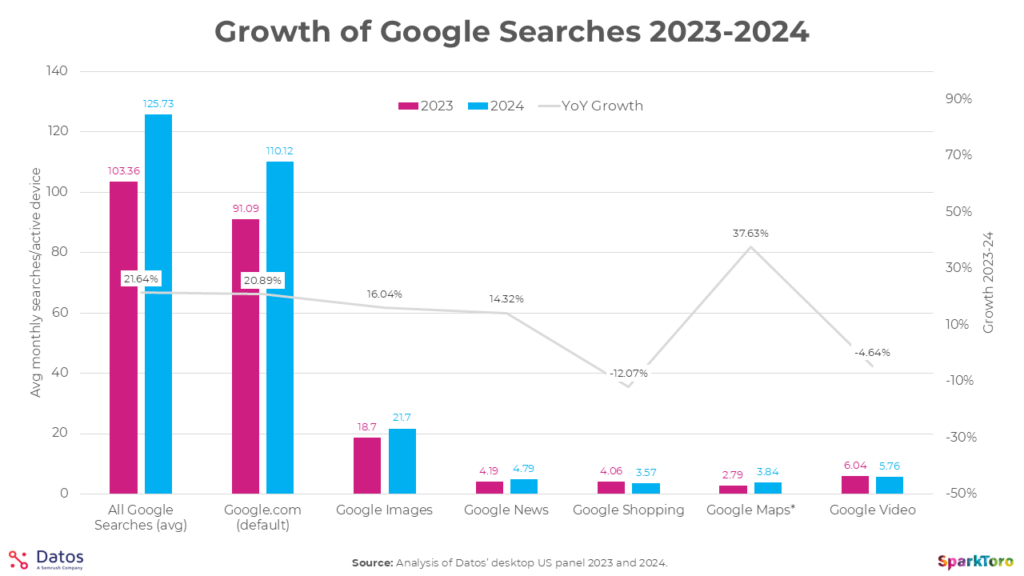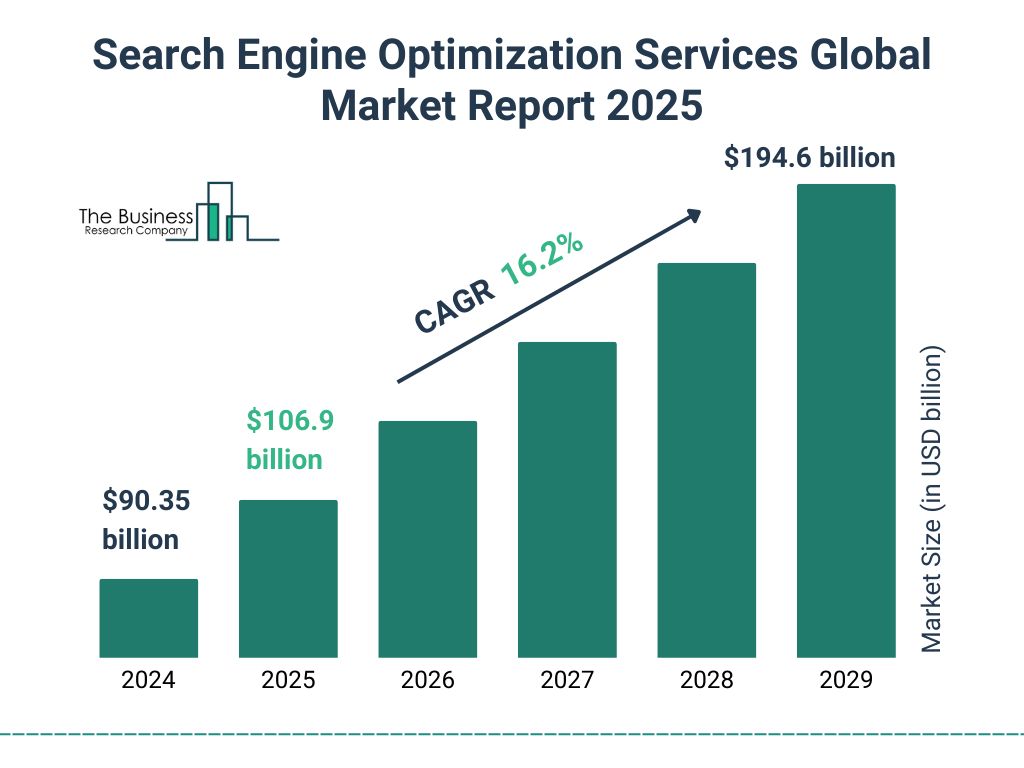Is SEO Still Worth It Now That AI Is Changing Search?
You’ve probably seen the headlines: “SEO is dead.”
People on Twitter, YouTube, and LinkedIn are saying AI is taking over search and that traditional SEO is a waste of time.
We get it.
Search is moving fast, and it’s hard to know where to focus.
But here’s the truth: SEO isn’t dead. It’s just shifting.
Let’s walk through what’s actually happening, minus the hype, so you can decide what’s worth your time and budget.
What’s Changed in SEO?
A few years ago, most people used Google to search for everything.
You’d type in a few words, scroll through links, and click on a website.
Now, more people are asking tools like ChatGPT, Gemini, Claude, and Perplexity for answers.
These tools use AI to read, summarise, and respond to questions. Sometimes they give links. Sometimes they don’t.
That’s what’s got people talking.
If there are no clicks, how do you get seen?
If AI gives the answer straight away, do websites still matter?
The short answer is yes.
But the way you show up has changed.
And Google knows it.
That’s why they’re rolling out AI Mode in Search a new experience that blends generative AI answers directly into search results.
It’s early days, but it signals a big shift in how users discover content on Google.
What Is GEO?
GEO stands for Generative Engine Optimisation.
There are other names such as LLMSEO, AISEO, etc.
It’s a way to make sure your brand or content shows up in AI-generated answers, like the ones from ChatGPT or Perplexity.
These tools pull from what they’ve read: websites, articles, forums, and trusted sources.
If your brand is part of that input, you’ve got a better chance of being part of the output.
It’s not about ranking anymore. It’s about being remembered.
Google vs ChatGPT: The Real Numbers
There’s been a lot of noise about people ditching Google for AI tools like ChatGPT.
But when you look at the actual numbers, the story changes.
According to new research from Rand Fishkin and Datos:
Google handled 14 billion searches per day in 2024. ChatGPT handled 37.5 million search-like prompts, about 1/373th the volume.
Even combined, other AI tools make up less than 2% of the total search market.
So no, AI hasn’t “killed” Google.
What has changed is how people get answers.
Some are asking AI instead of Googling.
Google search grew over 21% year-over-year in 2024.
AI tools are growing too, but mostly for writing and summarising, not pure search.
Google still dominates discovery.
AI tools are worth paying attention to, but if your SEO strategy is still focused on showing up in Google, you’re exactly where you should be.
GEO (Generative Engine Optimisation) is just an added layer, something to build into your content plan, not replace it.
So, should I invest in SEO in 2025?

Despite all the talk about AI taking over, people are still using Google. And they’re using it more.
This chart from Datos and SparkToro shows that average monthly searches per active device grew in 2024 compared to 2023, especially on Google.com and Google Images:
-
Google.com (default): up 20.9%
-
All Google Searches (average): up 21.6%
-
Google Images: up 16%
Yes, some areas like Google Maps and Google Video saw a small dip.
But the core search behaviours, the ones SEO focuses on, are still climbing.
People still turn to Google for answers, and that’s not slowing down.
Generative tools matter, but Google remains the biggest discovery engine.
SEO is still worth it. Arguably more than ever.
Good SEO already includes things that help with GEO:
-
Clear, helpful writing
-
Fast websites
-
Strong internal links
-
Mentions from trusted websites
None of that is wasted.
In fact, these basics now help you in both Google and AI-driven tools.
The part that’s new is this:
You also need to think about where your brand is mentioned.
AI tools pull from big sites like Reddit, news sites, and forums, not just your homepage.
If you’re only focusing on ranking your website and ignoring your brand’s presence across the web, you’ll miss out.
The SEO Industry Isn’t Shrinking, It’s Growing Fast
SEO is growing fast.
It’s expected to double from $90.35B in 2024 to $194.6B by 2029 (CAGR: 16.2%).
Businesses aren’t pulling back. They’re investing more.
Why? Because even as AI changes how people search, visibility is still key.
Whether it’s a Google result, an AI answer, or a voice assistant response, your brand needs to show up.
That’s what SEO, and now GEO, is all about.
This growth shows that businesses understand the shift and are investing to stay visible wherever people are searching.
How to Rank in ChatGPT, Gemini, Perplexity, and AI Overviews
Search is changing, but strong SEO still sets the foundation. Here's how to improve your visibility across AI-powered tools:
1. Make Your Site Fast and Crawlable
AI tools like Gemini and Perplexity rely on fast-loading, accessible pages, just like Google. If your content is blocked or bloated, it might be skipped.
Clean up unnecessary scripts, fix crawl errors, and ensure your key pages are indexable.
2. Write Clear, Structured Content
ChatGPT and Perplexity summarise answers from existing pages. If your content is messy or vague, it won’t be used.
Use headings, short sentences, and plain language. Directly answer common questions.
3. Share Specific Facts and Insights
AI tools prioritise sources that provide unique, useful information.
Include real stats, timelines, quotes, and original insights. Make your content worth referencing.
4. Get Mentioned on Trusted Sites
Mentions from high-authority websites help AI models recognise your brand. This mirrors how trust is built in SEO.
Focus on digital PR, interviews, guest content, and being cited in blogs, forums, and news sites.
5. Be Consistent Across Platforms
AI systems look for repetition and consistency. If your brand is active across multiple sources, it's more likely to be included in AI responses.
Use the same brand name and messaging across your site, LinkedIn, YouTube, podcasts, and niche communities.
6. Keep Your Content Fresh
AI models now access real-time data. Perplexity and Gemini show recent results. Stale content gets ignored.
Update core content regularly. Show last updated dates. Refresh key stats and recommendations.
7. Think Beyond the Click
Being quoted in an AI answer builds brand recognition, even if no one visits your site directly.
Focus on visibility. SEO now includes showing up in responses, not just ranking on a results page.
Final Word
SEO isn’t dead. It’s adapting.
People still want useful content. They’re just using more tools to find it.
Stick to the fundamentals, and your SEO will keep delivering.
You’re not throwing money away, you’re staying in the game.
Still unsure where to start?
We help brands stay visible across both traditional and AI search.

